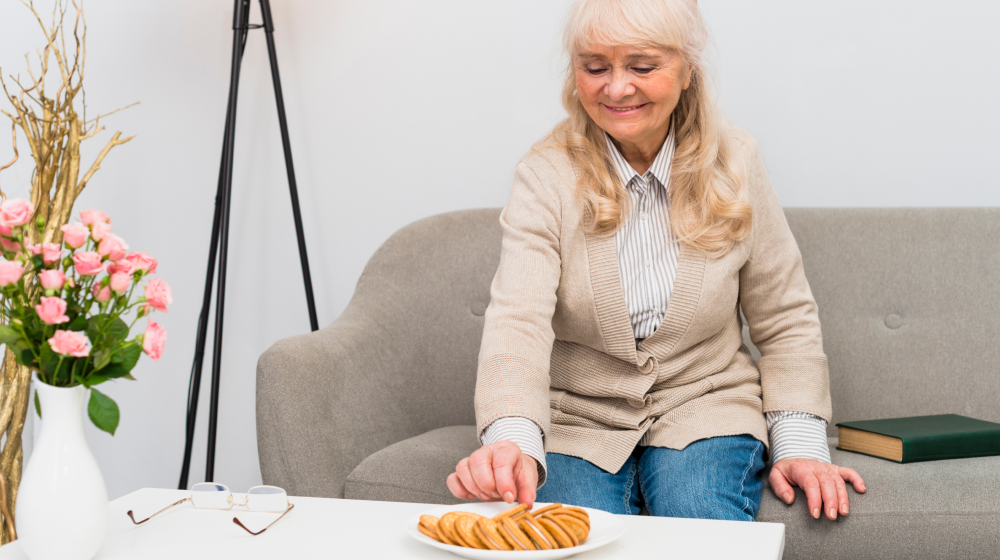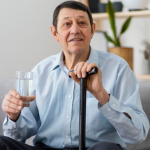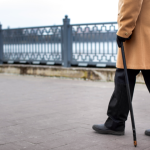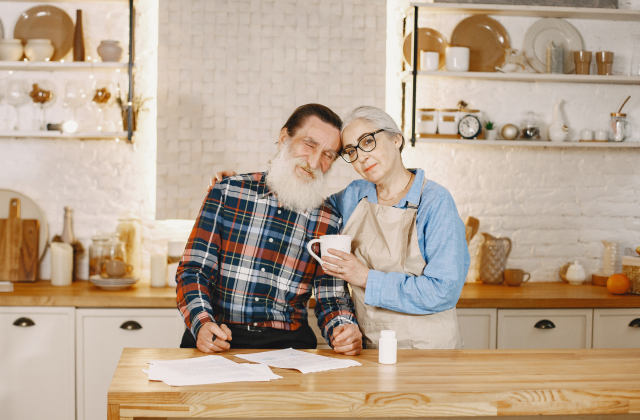How to Enable Seniors to Live Independently in Their Own Homes
From the Professionals at Angel Care Inc., NY
With increasing age, being independent is the most cherished for the majority of seniors. At New York’s Angel Care Inc., we understand the importance of staying independent while, simultaneously, ensuring the safety and well-being of the elderly. Our caregivers and professionals are committed to providing home care to ensure senior independence, which allows seniors to remain at home and live comfortably and with dignity.
In this article, we’ll explore practical caregiving tips to promote senior independence, offer advice on home modifications for independent living, and discuss how technology to support senior independence can empower seniors to live on their terms.

Why Maintaining Independence in Elderly is Crucial
A desire to be independent is a desire that is shared by everyone, and it does not change across age groups. For the elderly, being independent is in proportion to their psychological and mental health. Independence has been found to reverse the tide of depression, loneliness, and worry, which are common among the elderly.
But helping the old to live independently requires good planning, support, and appropriate facilities. We at Angel Care Inc. believe in a holistic approach to home care for independent aged individuals, offering services that are tailored to each individual’s personal needs.
Independent Living Tips for Seniors
Following are some tips on caregiving to maintain senior independence, gained from experience:
- Encourage Regular Physical Activity
Exercise regularly to maintain strength, balance, and flexibility, reducing the risk of falls. Gentle exercising through activities like walking, stretching, or yoga can easily be incorporated into daily life. - Meal Preparation Assistance
Independent living does not mean that seniors need to do any activity on their own. Meal planning and preparation help ensure that seniors get proper nutrition without feeling overwhelmed. - Maintain a Routine
Consistency is the secret to maintaining seniors’ mental acuteness and on an even keel. A daily routine keeps them feeling a sense of normality and being independent. - Encourage social interaction
It is vital to be socially active. Encourage seniors to stay in touch with friends, family, and community organizations, because social isolation can lead to depression and dementia.
Home Care to Help Senior Independence
Independent elderly home care is a treasured commodity for families who want to preserve their loved one’s independence. We at Angel Care Inc. offer a wide range of services designed to enable seniors to be independent and receive the care they need.
Below are some of the ways that our home care services help with elderly independence:
| Service | How It Supports Independence |
| Personal Care Assistance (PCA) | Helps with bathing, dressing, and grooming, promoting dignity and self-esteem. |
| Medication Management | Aids in ensuring medication is taken correctly and on time, precluding unnecessary hospitalization. |
| Companionship | Provides social contact and emotional support, warding off loneliness and fostering mental health. |
| Light Housekeeping | Helps keep the home environment clean and well-organized, reducing the risk of accidents and improving security. |
All these services help provide elderly persons with a safe and independent way of living, unencumbered by the hardships of daily living.
Home Modifications for Independent Living
Modifying home to accommodate seniors can be a huge improvement in their independent living. Below are some independent living home modifications that can enhance safety and functionality:
- Install Grab Bars in the Bathroom: These offer additional support in getting in and out of the shower or bathtub, minimizing the chances of falls and slips.
- Provide Sufficient Lighting: Sufficient, even lighting avoids the senior from tripping on items and falling, making it an extremely necessary feature in a safe home for seniors.
- Clear Passages: Clear passages of anything that can be a hindrance, such as rugs or clutter, to provide a secure environment.
Bed Height Adjustment: Beds which are either too high or low may be uncomfortable for seniors when entering or exiting. Bed height adjustment may aid in safe mobility.
Technology to Foster Elder Independence
Technological developments have made living independently easier than ever for the elderly. The right technology has the ability to improve safety, convenience, and peace of mind for seniors and their families as well. Some of the technologies that we recommend are:
Fall Detection Systems: Wearable devices that can alert caregivers automatically when a fall is detected, so that the response is quick.
- Remote Medication Reminders: Equipment and apps that prompt older adults to take medication at the correct time, avoiding missing a dose.
- Smart Home Devices: Voice-operated devices like Amazon Alexa or Google Home allow older adults to control lights, heating, and appliances from the comfort of their sitting position, avoiding unnecessary mobility.
- Telehealth Services: Older adults will be able to visit their physicians at home, cutting down on travel and enabling immediate care.
These technologies allow older adults to remain at home more independently and securely.
Ask Angel Care Inc for help today!
Sustaining independence as we age is the essence of a happy life. At Angel Care Inc., we are committed to helping the elderly sustain independence using home care to provide senior independence and practical caregiving guidance to enable senior independence. With adequate support, resources, and accommodations, seniors can continue to do well at home.
If you or your family member is looking for expert advice in remaining independent at home, independent aging in-home care, or consultation regarding home modifications for independent living, contact Angel Care Inc. today. We are here to assist in making aging in place not just possible but secure and a rewarding experience.

Helping seniors stay well-hydrated goes beyond physical health; it is also fundamental to their quality of life. Dehydration in seniors is an ongoing problem that is often underestimated. Residents may experience significant negative health consequences as a result of dehydration, including confusion/disorientation, too little fluid in the body, weakened immune function, and possibly even hospitalization. Hydration in the elderly is an issue that needs focused attention in home care where we are trying to create a setting that helps the body have a healthy balance of fluids. Our caregiver specialist will review how to ensure seniors drink enough water and remain hydrated, while exploring ideas to keep your loved one healthy. Why Hydration Is Important For The Elderly As we age, we lose the ability to retain water, which creates a greater vulnerability to becoming dehydrated. In addition to this, many physiological changes occur with aging that can affect hydration; such as less desire to drink and lowered kidney function, both of which can complicate fluid level regulation. Proper water intake is noticeably significant for well-being, organ function, and mental health despite the aging body. "Hydration is at the core of health, but particularly for the older adults whose health and comfort can noticeably change with even small changes in fluid." — Angel Care Inc. NY How Much Water Should An Elderly Adult Drink? A common question that caregivers ask is 'How much water should older adults drink?'. Standard recommendations for water intake for adults may not be directly transferable to older adults. Older adults can still afford to drink less water than young adults drink, but this does not mean that they can afford to neglect their hydration. A senior adult needs an average of 1.5 to 2 liters of water per day but the amount of hydration can vary depending on activity level, climate, health issues, and diet. Also, keep in mind that seniors will have some hydration from their food as well (primarily fruits and vegetables). Signs of dehydration in senior adults The signs of dehydration in senior adults can be less apparent and can often be mistaken for something else. Because of this it is very important to always get a prompt diagnosis. The signs of dehydration in senior adults can include: Fatigue, weakness, dizziness Dry mouth and dry skin Decreased urination, dark urine Disorientation, slower reaction time, irritability Loss of appetite If you notice any of these signs in your family member don’t hesitate to get in touch with their healthcare practitioners. The sooner you take action, the easier it is to avoid hydration complications. How do you manage hydration in senior adults. Managing hydration in senior adults is not just about maintaining the proper water balance, part of it is about establishing proper water intake habits. Below are some simple suggestions. Frequent water intake throughout the day Ask seniors to drink water at scheduled times during the day, even if they are not thirsty. Staying hydrated all the time is an important part of their health regimen. Adding liquid nutrition to the diet Add in watermelon, cucumbers, citrus fruits to the meals these fruits will help enhance hydration. Humidifier Excessive dry air is a contributing factor to possible dehydration (especially during the heating season), and a humidifier can help maintain normal humidity in the room. Medications and overall health considerations Some medications may be a contributing factor to dehydration, and chronic conditions (i.e., diabetes) require greater hydration management. Some Tips on Hydration for the Elderly while at Home Use technology-based reminders Smart watches and mobile apps can be helpful reminder devices for seniors who may forget to drink water regularly, or do not understand the importance of hydration. Offer water in forms other than just plain water Some seniors may prefer herbal teas or broths in addition to plain water. A variety of liquid types is useful in helping seniors stay hydrated. Understand their preferences for water temperature Some seniors may not drink water if it is too cold. Gradually introducing room temperature, or even warm water may help encourage them to drink. Monitoring hydration status in seniors Senior hydration monitoring is extremely important as we want to keep hydration status adequate to prevent dehydration, as well as promote their overall well-being. Regular health checks, monitoring of their urine color, and tracking how many fluids they drink daily (and documenting what types of fluids) can help prevent problems. It could be useful to have a hydration journal for seniors to track the amount of water consumed on a daily basis, and to pick up patterns or a need for increased fluids. Hydration considerations for elderly care agencies to implement Water should always be available in all rooms Offer water in small portions distributed throughout the day, to get them to drink frequently. Use education to promote the importance of hydration, and also to make drinking water a pleasant and enjoyable habit. Conclusion: Effective hydration for elderly individuals, while at home, is an important aspect of maintaining a healthy lifestyle. With just a few simple adjustments to drinking water habits, we can significantly enhance health status and overall well-being. Angel Care Inc. NY takes a person-centered approach to elderly care that also includes hydration consultation and individualized approaches to care planning - to make every day live with health and energy. "Hydration is not just a habit, it is the first line of health. Regular adequate hydration increases the quality of life for elderly individuals for years to come." - Angel Care Inc. NY

With age, a person's ability to move around can be one of the hardest things to maintain. Often, mobility issues in older adults affect someone's ability to engage in daily activities and impact their quality of life, leading to a reduced sense of personal independence, limited participation, and overall well-being. Regardless of whether your mobility challenge is due to illness, injury, or a normal part of aging, finding the right solutions that maintain or restore mobility is important. At Angel Care Personal Care Assistance, we recognize how difficult it can be to manage loss of mobility in elderly individuals. With proper including strategies, physical therapy, and mobility aids, we can provide independence back to seniors that will help them live a more comfortable life in their home. Understanding Mobility Problems in The Elderly Mobility problems in older adults may have many factors that contribute to their inability to get around. Further, mobility issues can stem from both age-related changes and chronic conditions (such as arthritis or stroke), as well as general weakness. These problems may create difficulties with walking and standing and, issues with basic mobility skills associated with daily activities such as using the bathroom or getting in and out of bed. While mobility problems are a natural part of aging, recognizing mobility problems and treating them effectively may create some improved outcomes for the elderly and allow them to gain a degree of independence in their lives. Solutions for Senior Mobility Issues - Working to Restore Senior Mobility Physical Therapy for Senior Mobility Continuing to explore the best types of treatment for mobility problems, physical therapy is one of the best treatments. With physical therapy, we can devise a program of individualized exercises that can improve strength, balance, and flexibility. A physical therapist can create a tailored exercise program to address mobility, to assist with fall prevention, and to accommodate individual needs. Quote: "Physical Therapy is one of the best ways to increase the mobility and independence of your senior population when focusing on rehabilitation and prevention." -- Angel Care Inc. Top Mobility Aids for the Elderly Mobility aids are an essential component of safe mobility for many seniors! There are several types of aids available, based on how much support is needed: Canes and Walking Sticks: The best option for seniors that are still mobile, need some minimal support, but can have balance problems. Walkers: A good option for when a senior needs more assistance to walk safely. A walker provides a larger base of support. Wheelchairs and Rollators: These are for seniors that may not be able to walk long distances or stand for long periods. Stairlifts: These are an option for seniors that have weaknesses preventing them from walking in the stairs or have joint issues. When identifying the right mobility aid, you will need to assess the elderly individual's needs, as well as their lifestyle, along with the amount of support needed to be comfortable. Managing Mobility Loss in the Elderly: A Step-by-Step Method Assessment and Diagnosis Before starting any plan for improving mobility, honestly assess the senior’s lifestyle. This starts with a comprehensive assessment, including assessing the individual’s physical health, mobility restrictions, and overall lifestyle. Partnering with a medical professional or a home care provider can assist with development of a personalized plan. Creating a safe home environment At home, it is important to create a mobility friendly home environment to eliminate hazards and encourage mobility. This can include: Cleaning out walls and floors to ensure pathways are clear Installing grab bars in bathroom and stair areas Never using throw rugs, or if using non slip throw rugs anchored with velcro A designed home environment can lead to a safer and more mobility friendly space. Getting seniors to do mobility exercises at home Getting seniors to do mobility exercises at home as part of their daily life can help them keep some flexibility and strength. For example: Chair exercises – strengthening of lower body muscles in a chair. Balance exercises – practicing standing on one foot or being stable walking heel to toe. Stretching - flexibility in legs, arms and torso. "Exercise is the best and kindest way to maintain and even improve mobility in seniors: even basic chair exercises will go a long way to getting seniors to be more independently mobile." - Angel Care Inc. Home Care for Seniors with Mobility Issues When mobility is drastically reduced to the point of being home bound it is critical to seek some home care services for assistance and support. At Angel Care Inc. we work with families to create personalized in home care to support them with all activities of daily living to allow seniors to maintain as much independence as able. What is included in home care for mobility issues? Personal Care Assistance: Assistance with bathing, dressing and grooming. Mobility Assistance: Help with getting in and out of bed, walking, and using mobility aids. Medication Management: Making certain seniors take prescription meds on time or pain relievers needed for mobility issues. Companionship: Helping minimize loneliness by stimulating interaction and mental well-being. The Caregiver's Role in Supporting Elderly Mobility Family caregivers are vitally important in the support of seniors experiencing mobility problems. They not only help seniors with physically difficult tasks such as getting out of a chair, but help seniors with emotional support, motivation and the ability for seniors to stay physically and actively engaged in their own homes. Quote: "A caring caregiver is essential for aging adults with mobility issues because they help them live with dignity and independence." – Angel Care Inc. Key Tips for Families Supporting Aging Adults with Mobility Issues If you are a family member or loved one of a senior with mobility issues, here are a few helpful tips for you when caring for a senior: Encourage Regular Movement: Don't become sedentary - just taking a few steps will keep the from deteriorating. Use Mobility Aids: Help your loved one choose the best mobility aids for their individual needs. Identify and Manage Health Conditions: Chronic conditions like arthritis or diabetes can compound mobility limitations so those need to be addressed with a health care provider. Maintain a non-threatening environment: be supportive and calm, demonstrate reassurance and ensure the home allows easy access to safe mobility. Supporting Seniors in Mobility Issues Mobility issues in seniors can be challenging; however there are ways to increase their quality of life. A great deal can be accomplished from physical therapy and mobility aids, home care and appropriate exercises, but addressing mobility challenges is a holistic approach requiring timed compassion, knowledge and the best supports. Angel Care Inc. NY can provide the individual care seniors need to manage their mobility issues. If you or your loved one is experiencing mobility loss, please consider contacting us, we would love to share our guidance, professional care and support!



